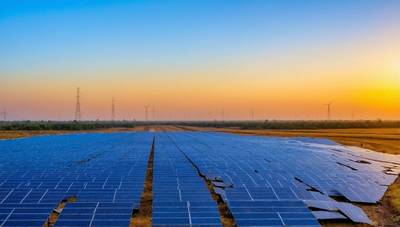India's top solar regulator blocks 3.2 GW of coal power plant, citing clean-energy push
A filing revealed that the power regulator in Rajasthan, India’s largest solar producer, refused to approve a 3,200 megawatt coal project. The power regulator said it was against clean energy goals, and lacked justification based on demand forecasts.
In an order published Thursday, the Rajasthan Electricity Regulatory Commission announced that it had rejected a petition filed by state-run Rajasthan Urja Vikas and IT Services Ltd to obtain coal power through bidding for a period of 25 years.
The utility claimed that the new capacity would be needed to meet a growing demand for electricity around-the-clock.
The regulator, however, said that the proposal was incompatible with the Central Electricity Authority’s latest Resource Adequacy Plan.
The Resource Adequacy plan estimates that Rajasthan will only require 1,905 MW additional coal capacity in 2035-36. This is far less than 3,200 MW.
This decision is made at a time when other Indian states are increasing their coal power purchase, citing a strong demand for power and the need to have base-load electricity available round-the clock.
Rajasthan's power regulator noted that upcoming nuclear projects and large-scale solar additions, as well as battery storage plans, would help to ease the state's supply gap.
In its order, the commission stated that long-term coal contracts can lock in expensive power and undermine renewable energy integration.
The commission warned consumers that locking in coal prices for 25 years would increase their costs and worsen the air quality. This is because the proposed plant will burn about 40,000 tons of coal per day, releasing hundreds if not thousands of tonnes of fine particulates.
The report also highlighted renewable energy curtailment, and advised the state that it should maximize its solar and wind power before adding any new coal capacity. (Reporting and editing by Shreya Biwas; Sethuraman N.R.)
(source: Reuters)





